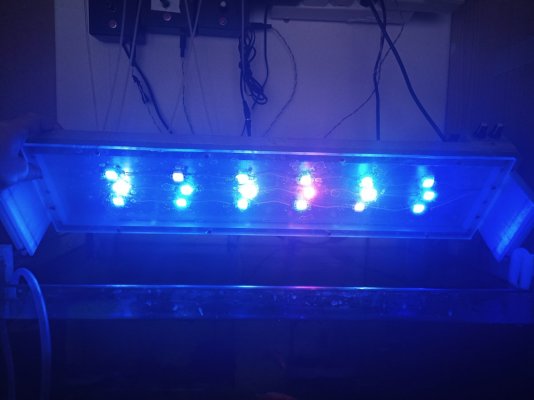Bro I’m not surprised your zoas have struggled, keep at it but if your march ICP is accurate an iodine of 200+ would be enough to melt any Zoa and your now probably dealing with the aftermath
Plus the 2 super low phosphates readings will be causing some major issues.
Just get nitrate and phos stable and work out how your iodine got that crazy high!
Good luck!
Plus the 2 super low phosphates readings will be causing some major issues.
Just get nitrate and phos stable and work out how your iodine got that crazy high!
Good luck!





















